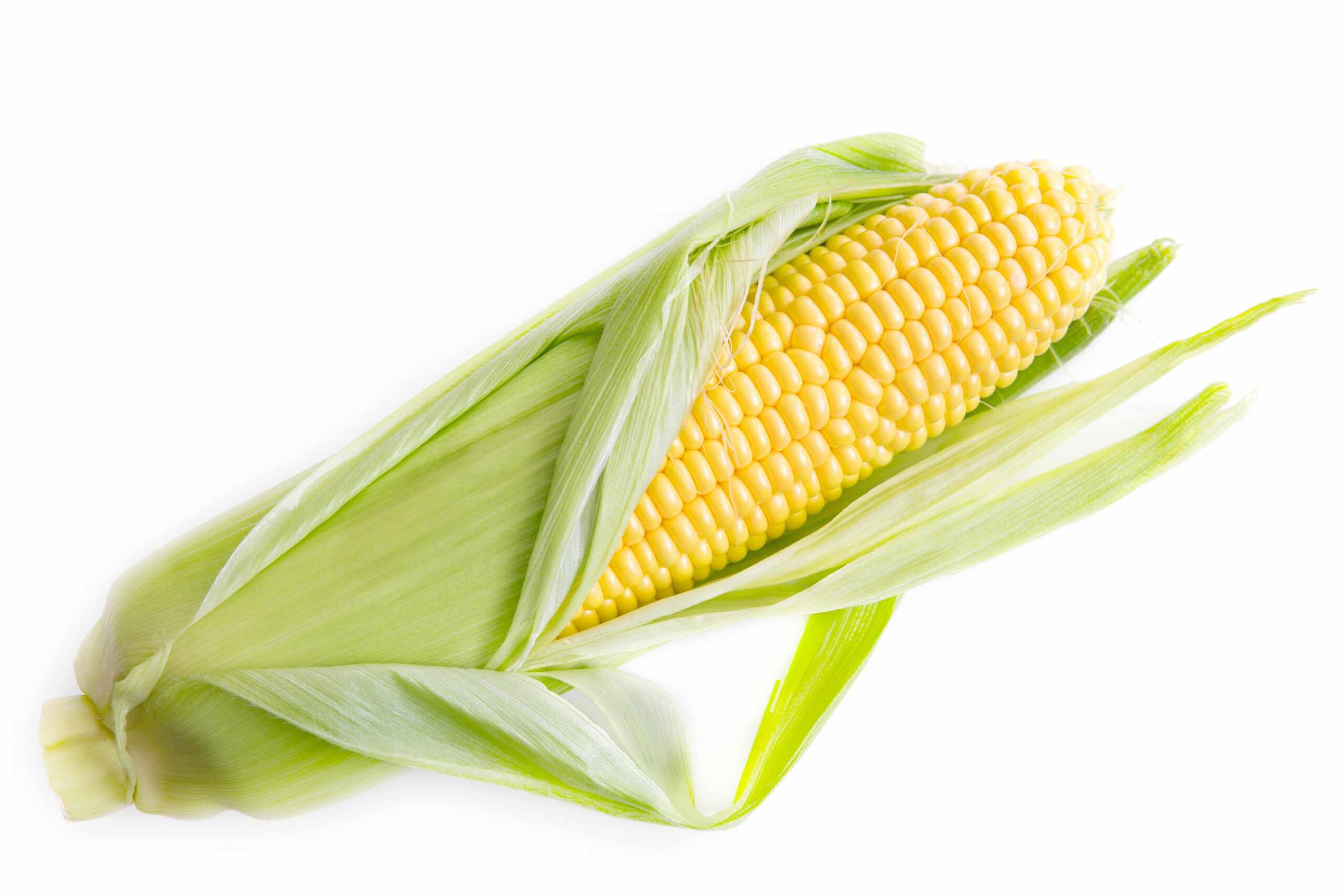So, like, you ever thought about the wild world of ; and gr? I mean, it’s kinda crazy how those symbols can totally change the whole meaning of a sentence, right? You got your semicolon, which is like, the awkward middle child of punctuation — nobody really knows how to use it properly. And then there’s gr, which is just a fancy way of saying “great,” but who even uses that in real life? It’s like, do we really need to shorten everything? I don’t know, sounds a bit lazy to me.
Anyways, if you’re looking to spice up your writing or, you know, impress your friends with some random punctuation facts, you’ve come to the right place! We’ll dive into the mysterious seas of ; and gr. Just a heads up, it might get a little messy — but hey, that’s life, right? Perfection is overrated, and who needs rules anyway? So grab your favorite drink, settle in, and let’s unravel the chaos of ; and gr together — it’ll be fun, I promise. Or maybe it won’t, who knows?
7 Surprising Health Benefits of Incorporating Whole Grains into Your Diet
So, let’s dive into the wonderful world of gardening tips for beginners. You know, it’s funny, but it seems like everyone thinks they can just stick a seed in the dirt and voila! A tomato plant appears. But, it’s not that easy, right? Not really sure why this matters, but it’s just like expecting to become a master chef after just boiling an egg.
First off, you gotta know what kinda soil works best. You can’t just grab a shovel and dig up dirt from your backyard. I mean, unless you wanna grow weeds, which, let’s be honest, they grow like they’ve got something to prove. You should look for soil that’s rich in nutrients, like a mix of compost and peat moss. Trust me, it make all the difference.
Now, let’s talk about light. Plants, they love sunlight. If you’ve got a shady backyard, you might as well be trying to grow ice cubes. Seriously though, most vegetables need at least 6 to 8 hours of sunlight a day. So, pick a spot that gets good light, but not too much. You don’t wanna fry your plants like they’re at a cookout.
Watering is another biggie. I mean, who knew, right? You can’t just dump a bucket on them once a month and call it good. It’s all about consistency. Maybe it’s just me, but I feel like a good routine is key here. Watering deeply, but less frequently is the sweet spot. That way, the roots go down deep looking for moisture, and you don’t end up with a bunch of flimsy plants.
Okay, hold up. Let’s break this down into a little table, ‘cause who doesn’t love a good visual aid, am I right?
| Gardening Element | What to Do | Why It Matters |
|---|---|---|
| Soil | Use compost and peat moss | Nutrient-rich soil helps plants grow |
| Light | 6-8 hours of sunlight | Essential for photosynthesis |
| Watering | Deep, infrequent watering | Encourages deep root growth |
Alright, now let’s get into the fun stuff – the actual plants! You gotta choose wisely. There’s a ton of options out there, and it can be overwhelming. I mean, do you want veggies, herbs, or flowers? Maybe you wanna grow a little bit of everything? Just remember, not all plants play nice together. Some are like that one friend who’s always causing drama.
For beginners, I’d recommend starting with easy-to-grow vegetables like lettuce, radishes, and zucchini. They’re pretty forgiving. You mess up a little? No biggie. They’ll still grow. But if you think you can handle it, throw in some tomatoes and peppers. They’re the rockstars of the garden. Just don’t forget to stake them, or they’ll flop over like a drunk at a party.
And speaking of plants, let’s not forget about pests. Ugh, the bane of every gardener’s existence. You can’t really go the whole season without some little critters trying to munch on your hard work. Organic pest control methods are the way to go. Things like neem oil or insecticidal soap can save the day. But honestly, it can feel like a constant battle. You might find yourself out there at 10 PM with a flashlight, thinking, “What am I doing with my life?”
Let’s throw another table in here for good measure.
| Common Pests | Organic Control Methods | Notes |
|---|---|---|
| Aphids | Neem oil | Spray once a week |
| Slugs | Beer traps | They’ll crawl in and drown! |
| Spider mites | Insecticidal soap | Keep an eye out for webs |
Now, I gotta mention the importance of patience. Seriously, gardening is not a sprint; it’s more like a slow jog on a hot day. You’re gonna wanna see results immediately, but plants take time. Sometimes, you’ll be staring at your garden thinking, “Did I even plant anything?” But then, one day, BAM! You see a tiny sprout. It’s like a little miracle.
Also, don’t forget about mulching. It’s like giving your plants a cozy blanket. It helps retain moisture, suppress weeds, and keeps the soil temperature just right. You can use straw, wood chips, or even shredded leaves. I mean, if you’ve got leaves lying around, why not throw ‘em in the garden?
Lastly, keep a journal. Write down what you planted when and how it worked out. Maybe it’s just me, but I find that keeping track of things helps me remember what to do next year.
Are Grains the Key to Sustainable Weight Loss? Discover the Science Behind It
Alright, let’s dive right into this topic that’s been buzzing around lately. So, you know how everyone’s always talking about the importance of communication? Like, it’s a big deal, and people say things like, “oh, it’s key to success.” But not really sure why this matters, but communication is like, everywhere. Whether you’re in a coffee shop chatting with a friend, or you’re hammering out an email to your boss, it’s kinda essential, right? But, honestly, it can be super messy too.
So, let’s break down how effective communication impacts relationships. Relationships, they’re like, the bread and butter of our lives, ya know? If you think about it, every single day we’re interacting with someone, be it family, friends, or that barista who always gets your name wrong. Here’s a fun little breakdown of why communication matters:
-
Misunderstandings: They happen, like, all the time. You say one thing, and the other person hears something totally different. It’s like playing a game of telephone, but everyone’s just kinda confused and a bit annoyed.
-
Emotional connection: Good communication can help you feel more connected to people. When you’re able to express your feelings, it builds trust. Not really sure how that works, but it just does.
-
Problem-solving: Let’s be real, conflicts happen. But if you can talk it out, it might just save you from a huge blowout fight. I mean, who wants to spend their Saturday screaming at someone?
Now, speaking of communication, let’s chat about non-verbal cues. You know, body language, facial expressions, and all that jazz. Maybe it’s just me, but I feel like sometimes people forget how important these are. Like, if I’m talking to somebody and they’re just staring at their phone, I can’t help but think, “are you even listening?” But here’s the kicker: non-verbal cues can say more than words.
Here’s a nifty little chart that might help clarify how these cues work:
| Non-Verbal Cue | What it Might Mean |
|---|---|
| Crossed arms | Defensive or closed off |
| Eye contact | Interested or engaged |
| Fidgeting | Nervousness or impatience |
| Smiling | Friendly or open |
So, the next time you’re chatting with someone, pay attention to these little things. You might be surprised at what you find out.
Now, let’s not forget about written communication, which can be a whole other beast. Emails, texts, and social media posts, they all have their quirks. Like, have you ever sent a text and immediately regretted it? I know I have. One time I accidentally texted my boss a meme instead of a report. Yikes.
Here’s some tips for effective written communication:
-
Be clear: Don’t use jargon unless you’re sure the other person understands it. I mean, who’s got time to Google complicated words?
-
Proofread: Seriously, take a second to read what you wrote. Typos make you look like you don’t care. Or worse, that you’re a total goofball.
-
Know your audience: Writing to a friend is different than writing to your boss. Don’t be sending your boss a GIF of a cat dancing. That’s just not gonna fly.
-
Use bullet points: When you’re trying to get your point across, bullet points can help break things down. People love lists; it’s like candy for the eyes.
-
Be concise: Get to the point, or you might lose people’s interest. If you ramble on, they might just zone out.
So, let’s throw in some practical insight here. Maybe start keeping a journal, or a communication log, where you jot down the stuff you learn from your conversations. It might sound a bit cheesy, but reflecting on your interactions can totally help you improve your skills.
And then there’s the whole listening part. I mean, listening is half the battle, right? They say you’ve got two ears and one mouth, so you should listen twice as much as you speak. I mean, it’s not rocket science, but also, it’s not like people actually do that.
In summary, communication is super important in every aspect of our lives. Whether it’s verbal, non-verbal, or written, understanding how to navigate these can lead to better relationships and a happier life. So, next time you’re talking with someone, remember to embrace the imperfection, and just, you know, talk it out.
How Switching to Whole Grains Can Transform Your Gut Health: What You Need to Know
Alright, let’s dive into this wild ride of an article, shall we? So, have you ever thought about how “and” and “gr” play roles in our day-to-day chit-chat? Not really sure why this matters, but it’s kinda interesting to look at how these little things shape our conversations.
First off, let’s talk about “and.” It’s like the glue that holds our words together. We use it all the time, from simple sentences to complex ones. When you think about it, without “and,” we’d be like, totally lost. I mean, what would life be without connecting ideas? Imagine saying, “I like pizza. I like burgers.” It’s just… not the same, right? So, when we say “I like pizza and burgers,” it feels more complete, like we’re giving a full picture of our culinary cravings.
Now, “gr” is a bit more elusive. Maybe it’s just me, but I feel like it’s often overlooked. It’s like that one friend who always hangs in the back of the group photo, you know? But “gr” can stand for a lot of things. In the world of texting, it could mean “great” or “grumpy” depending on the context. And let’s be honest, who hasn’t felt grumpy before?
Here’s a quick rundown of how “and” and “gr” show up in our lives:
| Context | Example with “and” | Example with “gr” |
|---|---|---|
| Food | I want pizza and wings. | Feeling gr after eating too much. |
| Emotions | I’m happy and tired. | I’m in a gr mood today. |
| Daily Activities | I went shopping and cooking. | I just feel gr about everything. |
See what I mean? These words, while small, pack a punch. But enough of the serious stuff. Let’s throw in some casual talk about how we use these words. I mean, sometimes I just toss “and” in there, like, “I went to the store and forgot what I needed.” It’s like my brain just hits a wall, ya know? It’s a little bit of a disaster sometimes, but that’s the fun of it, right?
Now, speaking of disasters, let’s chat about “gr.” I mean, one moment you’re chilling, and the next you’re just “gr.” Maybe it’s because your coffee’s cold or you stubbed your toe — it happens, right? Like, I’m trying to be all zen and peaceful, but then BOOM! Grumpiness sets in.
And, oh boy, this can lead to some funny conversations. Imagine you’re hanging out with friends, and someone says, “I’m feeling gr today.” And you’re just like, “What’s up with that?” It’s almost like a secret code. You either get it or you don’t.
So, let’s explore how we can spice up our sentences using long tail keywords related with “and” and “gr.” For instance, you could say, “I enjoy hiking and photography.” Or, “I’m often gr in the morning before coffee.” It’s all about expressing yourself, but in a way that’s kinda relatable.
Here’s a little list of ways you can use these words:
- Combine Ideas: Use “and” to connect thoughts. “I love chocolate and vanilla.”
- Express Feelings: Use “gr” to convey moods. “Today was just gr.”
- Share Experiences: “I went to the beach and had a blast.”
- Describe Preferences: “I prefer cats and dogs.”
Now, don’t get me wrong. I love a good grammar lesson as much as the next person, but sometimes you just gotta let loose and have fun with it. Language is meant to be playful, right? So, mix it up, throw in some “and” here, some “gr” there, and see what happens.
I mean, life’s not perfect, and our sentences don’t have to be either. So, feel free to let your creativity run wild. Maybe you’ll invent a new phrase! Who knows? Just don’t forget to embrace the chaos. Because at the end of the day, it’s all about connecting, expressing, and maybe having a good laugh about it all.
And, here’s the kicker — the more you mess around with these words, the more you’ll find your unique voice. So go ahead, try it out! You might just surprise yourself with what
The Ultimate Guide to Choosing the Right Grains for Optimal Nutrition and Energy
Okay, let’s dive into this whole idea of embracing imperfection, shall we? It’s like, we’re living in a world obsessed with perfection, right? I mean, just scroll through Instagram and you’ll see loads of perfect pics, perfect lives, perfect everything. But, not really sure why this matters, but what if I told ya that being imperfect could actually be a good thing? Seriously, it’s like the universe is telling us to chill out and just be ourselves, you know?
So, first off, let’s talk about the benefits of embracing imperfection. Some folks think that being perfect makes them look better, but in reality, it’s often just a big ol’ façade. You know, like those fancy cakes that look amazing but taste kinda meh? Here’s a quick list of why being imperfect can be awesome:
- Authenticity: People connect with realness. When you’re not trying to be something you’re not, you’re more relatable. It’s like, “Hey, I’ve messed up too!”
- Creativity: Sometimes, the best ideas come from mistakes. Like, who knew that spilled paint could lead to a masterpiece? Not me, but it happens!
- Resilience: Learning from our mistakes makes us stronger. Think about it, every time you fall and get back up, it’s like you’re building a muscle, right?
Now, let’s touch on the psychological aspects of imperfection. It’s a bit of a head-scratcher, but maybe it’s just me, but I feel like we put so much pressure on ourselves to be perfect. I mean, who even decided that we gotta have a perfect job, relationships, and life? Spoiler alert: nobody! It’s a social construct, and it’s exhausting. So, here’s a table breaking down some common beliefs about perfection and their flawed counterparts:
| Perfectionist Belief | Reality |
|---|---|
| “I must never fail” | “Failure is part of growth” |
| “I need to be the best” | “Being yourself is enough” |
| “Mistakes are unacceptable” | “Mistakes lead to learning” |
| “I can control everything” | “Some things are out of my hands” |
Pretty eye-opening, right? I mean, if we just accepted that we’re all a hot mess sometimes, we’d probably feel a whole lot better.
Now, let’s talk about real-life examples of embracing imperfection. Ever noticed how some of the best music comes from artists who just let loose? Like, take a look at Bob Dylan. His voice isn’t exactly what you’d call “perfect,” but it’s raw and real, and that’s what people love about it. Or how about those reality TV shows? Sure, they’re chaotic and messy, but that’s what keeps us glued to the screen.
And here’s a little insight: when you stop striving for perfection, you might find that you’re actually happier. It’s like, you don’t have to worry about keeping up appearances all the time. You can just be you, imperfections and all. Think about it, who wants to sit around pretending to be someone they’re not? Not me!
Let’s not forget about the workplace. A lot of companies are starting to realize that a culture of perfectionism can be a total buzzkill. Employees are happier when they feel they can take risks without the fear of being judged for every little mistake. You know what they say, “Fail fast, learn faster!”
And don’t even get me started on social media. It’s a wild ride out there! People are finally starting to share their unfiltered lives, and it’s refreshing. Like, “Hey, I burned dinner last night. Who’s with me?” It’s like a collective sigh of relief when we see others being real instead of perfect.
In summary, embracing imperfection isn’t just a catchphrase; it’s a lifestyle. It’s about letting go of the need to be perfect and accepting that mistakes are part of the journey. So, next time you find yourself stressing over the little things, maybe take a step back and ask yourself if it really matters. Spoiler alert: it probably doesn’t!
So, what do ya think? Maybe we should all start celebrating our imperfections instead of hiding them. It’s like, who’s with me on this? Life’s too short to worry about being perfect, right? Let’s just be real, have fun, and embrace the messiness of it all!
Can a Grain-Rich Diet Improve Your Mental Clarity? Exploring the Connection Between Grains and Brain Health
Alright, let’s dive into the wild world of how to enhance your writing skills. Now, I’m not saying I’m the expert here, but we all know that writing can be a bit tricky sometimes, right? Like, one minute you think you’ve nailed it, and the next you’re staring at a blank page wondering why you even thought you could string a sentence together. But hey, not really sure why this matters, but let’s just roll with it.
First off, let’s talk about the importance of writing regularly. It’s kinda like exercising, but for your brain. You gotta flex those writing muscles or they get all flabby and sad. So, if you’re lookin’ to improve your writing skills for blog posts, try setting aside some time every day to write. Even if it’s just a few sentences. And if you miss a day, don’t sweat it. I mean, life happens, right?
Now, here’s a nifty little table to help you understand how often you should be writing:
| Frequency | Benefits |
|---|---|
| Daily | Builds consistency and habit |
| Weekly | Allows for deeper thought and analysis |
| Monthly | Helps in evaluating progress and goals |
Maybe it’s just me, but I feel like writing daily sounds super intimidating. But honestly, even jotting down your thoughts in a journal counts! Just keep the pen moving, or the fingers typing, or whatever works for ya.
Next up, let’s chat about reading. Yep, you heard me! If you wanna improve your writing skills for SEO, you gotta read. A lot. And not just stuff that’s easy to digest. I’m talking about the good stuff — novels, articles, poetry, you name it. It’s like, the more you read, the better you understand how to structure sentences, use vocabulary, and even get a grip on different styles. And, I mean, who doesn’t love a good story?
Speaking of stories, let’s list some genres you might wanna explore:
- Fiction
- Non-fiction
- Poetry
- Fantasy
- Mystery
- Science Fiction
If you feel overwhelmed by the choices, just pick one and go for it! Or, mix it up like a smoothie — a little bit of this, a little bit of that, you know?
Now, onto another fun tip: don’t be afraid to make mistakes. Seriously! It’s like, you’re not gonna write the next great American novel on your first try. So, embrace the messiness of it all. An imperfect draft can be the start of something beautiful, or at least that’s what they say. Not saying it’s always true, but still.
Here’s a little practical insight: create a writing schedule. It can be as simple as:
- Brainstorm ideas.
- Write a rough draft.
- Take a break.
- Edit and revise.
- Share it (if you’re brave enough).
You’ll find that having a plan helps, like, a lot. And you’ll be less likely to end up staring at that blasted blank page.
Now, let’s get real for a second. Sometimes, you’ll get stuck. It’s like, one minute you’re flowing, and the next you’ve hit a brick wall. So, what do ya do when that happens? Well, one trick is to change your environment. Go outside, sit in a café, or even just move to a different room. A change of scenery can spark creativity in ways you wouldn’t believe.
Also, don’t forget about the power of feedback. Share your work with friends or join a writing group. It can be scary, but getting outside perspective can really help you see things you mighta missed. Plus, it’s nice to know you’re not alone in the struggle of improving your writing skills.
And hey, if you’re looking for inspiration, maybe try writing prompts or challenges. They can be a fun way to kickstart your creativity. Here’s a few to get ya started:
- Write about a time you were embarrassed.
- Describe your perfect day.
- Create a story based on a random photo.
- Write a letter to your future self.
So, what do you think? Maybe you’ll give one a shot? Just remember, at the end of the day, writing should be enjoyable, not some chore you dread. So, keep it loose and don’t put too much pressure on yourself.
In the grand scheme of things, writing is a journey, not a destination. And who knows? You might just find that your unique voice is what makes your writing shine. And if it doesn’t, well, at least you’re trying, right? So, go ahead, pick up that pen, or open that
Conclusion
In conclusion, understanding the significance of effective communication in both personal and professional realms is crucial for fostering stronger relationships and enhancing collaboration. Throughout this article, we explored the various elements that contribute to successful communication, including active listening, clarity of expression, and empathy. We also discussed the impact of non-verbal cues and the importance of adapting your communication style to different audiences. As we navigate an increasingly interconnected world, honing these skills can lead to more meaningful interactions and improved outcomes. We encourage you to reflect on your own communication practices and consider implementing some of the strategies outlined. By committing to enhance your communication skills, you not only enrich your own experiences but also contribute positively to those around you. Take the first step today—practice active listening in your next conversation and observe the difference it makes.














